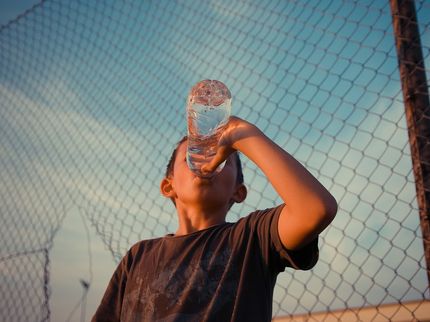Nestle told to review pumping impact on Michigan wetlands
Michigan environmental regulators have told a bottled water company to re-evaluate how its proposal to withdraw 210 million gallons of water annually from the state would impact local wetlands, streams and natural springs.
The Michigan Department of Environmental Quality requested more information from Nestle Waters North America in June about groundwater replenishment around the company's White Pine Springs well northwest of Evart, MLive reported .
The "information, analysis, data and explanation provided does not yet provide the department with a reasonable basis to make the determination" whether Nestle's proposal meets the state's legal requirements, according to a letter from the department.gm
This is the second time the department has sought more information about Nestle's proposal to increase the pumping rate on the well from 250 to 400 gallons-per-minute. The application has been stalled since October after Nestle was found planning to extract more groundwater in conjunction with a $36 million expansion of its bottling plant in Stanwood.
Richard Benzie, Drinking Water and Municipal Assistance Division director, said the department is asking Nestle to recalibrate their model showing how the groundwater affects wetlands in the area.
"Reluctantly, they are agreeing to do it, but I think they said it was not easy and it couldn't be done with until the end of August," Benzie said.
The department is reviewing the company's application under the Michigan Safe Drinking Water Act, a regulation for the state's water bottlers that was developed in response to environmental concerns from Nestle's original Sanctuary Springs well. The act is connected to the Natural Resources and Environmental Protection Act, which states that groundwater pumping must have no negative impact.
Arlene Anderson-Vincent, natural resources manager at the Nestle Ice Mountain plant, said the company is confident the additional information the department requested will show the proposed extraction is sustainable.
"We will use our 17 years of thorough studies and monitoring of groundwater and ecosystems to meet their request," she said.(dpa)
Most read news
Organizations
Other news from the department business & finance

Get the food & beverage industry in your inbox
By submitting this form you agree that LUMITOS AG will send you the newsletter(s) selected above by email. Your data will not be passed on to third parties. Your data will be stored and processed in accordance with our data protection regulations. LUMITOS may contact you by email for the purpose of advertising or market and opinion surveys. You can revoke your consent at any time without giving reasons to LUMITOS AG, Ernst-Augustin-Str. 2, 12489 Berlin, Germany or by e-mail at revoke@lumitos.com with effect for the future. In addition, each email contains a link to unsubscribe from the corresponding newsletter.






























































